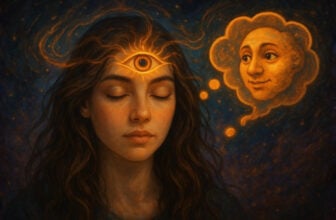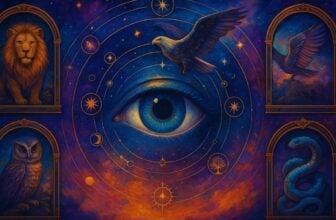A spooky prophecy from an unlikely source has travelers around the world checking their itineraries twice – and in many cases, scrapping their summer plans altogether. In recent weeks, a Japanese manga artist dubbed the “New Baba Vanga” has foretold a looming catastrophe said to strike within the next two months, sending a ripple of fear through the tourism industry.
It might sound like the plot of a disaster movie, but for many would-be tourists, this prediction is all too real. From bustling Hong Kong to the beaches of Thailand, anxious vacationers are cancelling trips en masse amid whispers of an impending cataclysm.
Travel agencies, airlines, and even governments have been forced to respond, as a wave of prophecy-fueled panic tests the nerves of travelers and tourism officials alike. (No, “prophecy insurance” isn’t a thing – yet.)
Prophetic Predictions Spur Travel Fears
Holiday getaways are supposed to be carefree, but the phenomenon of prophetic tourism fear is turning wanderlust into worry. In this case, the trigger is a decades-old prediction that has resurfaced and gone viral, warning of a “real catastrophe” on the horizon.
The result? A surge of superstition-fueled anxiety that’s prompting some travelers to get cold feet before their flights even take off. Social media has amplified the alarm, with ominous forecasts and dubious spiritual warnings spreading faster than you can say “Ring of Fire.”
From feng shui masters urging people to stay away, to psychic bloggers raising red flags, the chatter about an imminent disaster has taken on a life of its own. As one travel agent quipped, people are now more afraid of missing the end of the world than missing their connecting flight.
While scientists insist that accurately pinpointing an earthquake is virtually impossible, the mere hint of one has been enough to make would-be tourists wonder if their dream vacation could turn into a nightmare.
Who Is Ryo Tatsuki, the ‘New Baba Vanga'?

At the center of the storm is Ryo Tatsuki, a Japanese manga artist whose unsettlingly accurate visions have drawn comparisons to the late Bulgarian mystic Baba Vanga.
Baba Vanga – a blind clairvoyant famed for allegedly predicting events like the 9/11 attacks and the death of Princess Diana – left behind a legacy of eerily on-point prophecies. Now, Tatsuki is being hailed as her modern heir.
Tatsuki first gained attention back in 1999 with a self-published comic book titled “The Future I Saw,” compiling the vivid dreams and premonitions she claims to have experienced. Initially overlooked, the book (and its author) gained cult status after several of its predictions appeared to come true.
Most famously, Tatsuki’s work seemed to foreshadow the devastating March 2011 Tōhoku earthquake and tsunami with chilling accuracy. In fact, the cover of her comic explicitly mentioned a “massive disaster in March, 2011,” leading many to believe she had foreseen the 9.0-magnitude quake over a decade in advance.
Fans even credit her with predicting other calamities and losses – from the 1995 Kobe earthquake to the death of Queen frontman Freddie Mercury – though skeptics argue such claims are too vague to be taken seriously. Regardless, these apparent hits have earned Tatsuki an ardent following in Japan and across Asia, and the nickname “Japan’s Baba Vanga” seems to have stuck.
The July 2025 Prophecy Unpacked

Travel Industry Tremors: Tourism Takes a Hit
Official Warnings and Response
When rumor-driven fear starts affecting economies, authorities tend to take notice (and perhaps roll their eyes, just a little). In mid-April, as whispers of the July disaster gained traction online, China’s embassy in Tokyo issued a cryptic caution that many believe inadvertently fanned the flames.
The embassy’s public advisory urged Chinese citizens in Japan to “take precautions against natural disasters” and to be careful with travel plans. While sensible on its face – Japan is earthquake central, after all – the timing was impeccable.
Coming just after a Japanese scientific report warned of a high earthquake risk in the coming decades, the Chinese bulletin landed right amid the manga prophecy frenzy. Suddenly, what was essentially a standard safety reminder felt like official validation of the doomsday chatter. Some frightened tourists took it as confirmation that “even the embassy thinks something is up!”. (For the record, the embassy made no mention of Tatsuki’s comic.)
Japanese authorities, on the other hand, have been more reserved – if not downright skeptical. Mindful of how “highly unscientific rumors” can spook travelers, officials in Japan have been at pains to reassure the public.
The Japan Meteorological Agency (JMA) has stressed that it has issued no alerts for the July timeframe, reminding people that its state-of-the-art seismic monitors would provide warning if any real threat emerged.
In early May, Japan’s Cabinet Office even took to Twitter (or “X,” as it’s now known) to debunk the prophecy, explaining that modern science simply cannot predict earthquakes with exact timing.
Yoshihiro Murai, the governor of Miyagi Prefecture – a region hard-hit by the 2011 quake – spoke for many Japanese when he lamented the situation. “I believe it is a serious issue when the spread of highly unscientific rumors on social media [has] an effect on tourism,” Murai said pointedly in a press conference.
In other words: Japan’s message to anxious tourists is essentially “Keep calm and carry on – we’ve got this.” The country prides itself on some of the world’s strictest building codes, regular disaster drills, and an early warning system that buzzes phones ahead of quakes.
No prophecy, however viral, can change those facts. Still, with flight and hotel bookings abruptly falling, officials are treading a fine line – trying to dispel the superstition without drawing more attention to it. (It’s a bit like politely laughing off a bad joke, all while hoping the audience doesn’t take it seriously.)
Social Media Buzz and Public Reactions
If the halls of government are trying to stay calm, the wild west of social media is decidedly less Zen. Across Twitter, Facebook, and TikTok, the prophecy has taken on a life of its own. The hashtag #July2025Prediction has been trending globally, generating both genuine concern and tongue-in-cheek memes.
On one side are the worriers: users swapping earthquake safety tips, sharing maps of the “danger zone,” and even posting their July evacuation plans (who needs a beach itinerary when you have a disaster bug-out bag ready?).
Niche online forums about earthquake preparedness have seen a surge of new members, many of whom earnestly cite Tatsuki’s forecast as the reason they’re suddenly interested in stockpiling first-aid kits.
On the other side are the skeptics and jokesters. “Apocalyptic nonsense,” scoff some, dismissing the prophecy as just another internet hoaxibtimes.co.uk. They point out that Japan faces quakes regularly, and that vague predictions will eventually appear true by sheer coincidence.
Memes have proliferated too – one popular gag features a cartoon Godzilla in a meeting with Baba Vanga and Ryo Tatsuki, plotting their next “travel advisory.” In short, public reaction is split between half-panicked and half-amused. Even many Japanese are bemused by foreigners fretting over what they see as a sensationalized comic story.
“If Tatsuki’s right, at least we’ll have the best-documented disaster ever,” one Twitter user joked, noting how many people are now on alert for an event that science says is unlikely on any given day. Still, underneath the humor lies an unmistakable undercurrent of “what if?”. It’s that sliver of doubt – however irrational – that has driven some to cancel trips, and others to keep a wary eye on the calendar as July approaches.
Eerie Echoes and Historical Parallels
This isn’t the first time that prophecies or doomsday predictions have sent parts of society into a tizzy – though the impact on travel plans is a new twist. History is dotted with examples of mass anxiety over predictions (accurate or not).
Veteran travelers may recall the 2012 Mayan calendar hysteria, when the world was rumored to “end.” In a cosmic joke of sorts, that prophecy had the opposite effect on tourism: instead of scaring people away, it boosted travel to Maya archaeological sites.
Mexico recorded at least 23 million visitors in 2012 – a record year – as the curious flocked to witness the “end of the world” from Ground Zero. (Spoiler: the world did not, in fact, end.) Another case was the Harold Camping debacle in 2011. The American Christian radio host repeatedly predicted Judgment Day – most famously on May 21, 2011 – causing a stir among his followers.
Some believers did alter their plans (one can imagine a few canceled vacations among the devout) but there were no reports of widespread travel disruption when the rapture failed to materialize. And of course, there’s Baba Vanga herself. Over the years, the Bulgarian mystic’s prophecies (often posthumously attributed) have periodically gone viral – predicting anything from natural disasters to geopolitical events.
While her track record is hotly debated, one thing is certain: people love a good prophecy. Sometimes that manifests as entertainment (think Nostradamus or astrology columns), and other times it crosses into real-life behavior. What’s happening now with Japan’s “July jinx” may be unprecedented in scale – rarely have we seen thousands of tourists rethink travel due to a prediction – but it fits an age-old pattern.
When faced with the unknown, human reactions swing between skepticism, curiosity, and fear. And in the era of instant information, even a fringe prophecy can gain global traction overnight. As one travel analyst wryly noted, “We used to get worried about flight delays and hotel reviews – now we’re worried about psychic tsunamis.” History doesn’t always repeat, but it often rhymes, and this time it’s rhyming with a distinctly prophetic twist.
Last Words
In the final analysis, the saga of the “New Baba Vanga” and her July 2025 prophecy is as much about people as it is about predictions. It shines a light on the delicate balance between belief and reality in our modern world. On one hand, we live in an age of science and data – seismologists map fault lines, engineers earthquake-proof skyscrapers, and emergency alerts ping our phones for genuine threats.
On the other hand, we’re as susceptible as ever to the allure of a dramatic story, the whisper of a seer, the notion that someone might have a window into the future. When those two hands clap, the sound can be jarring: an Internet-fueled echo chamber where a comic book prophecy can cause real economic tremors.
Japan’s summer travel season will likely come and go, and – if the experts are right – the earth will remain undisturbed. Millions of tourists will have enjoyed their sushi and sunsets, wondering what the fuss was about. Others, who canceled their trips, might later chuckle (or sigh) at the vacation memories they didn’t get to make.
Either way, the “prophetic panic” of 2025 will be a lesson in how our global village handles fear: some with humor, some with caution, and some with sincere belief. For now, all eyes are on early July. The world isn’t exactly holding its breath (that’s more or less just the travel industry), but there is a collective curious gaze – a “let’s see what happens” moment shared across countries and social media feeds.
If nothing else, people have been reminded of the importance of disaster preparedness, even if prompted by a false alarm. And if something does shake the earth? Well, those who stayed home will feel vindicated, and those abroad will have one heck of a story to tell – the ultimate “I survived a prophecy” souvenir.
In the end, between myth and reality lies a space where human imagination runs wild, and it’s there that this peculiar story will live on, long after July 2025 has passed into history.
Enjoyed this article? If you found these insights helpful, consider subscribing for more in-depth news and analysis on the latest global trends and curiosities. We promise to bring you the facts – no crystal ball required.
Tags: Baba VangaNostradamus
Helen is the founder of Spiritualify.org where she covers all things astrology — from horoscopes and zodiac guides to retrograde alerts and moon updates. She also writes about other mystical lifestyle topics, such as numerology, crystal healing, tarot, dream interpretation, and more.







